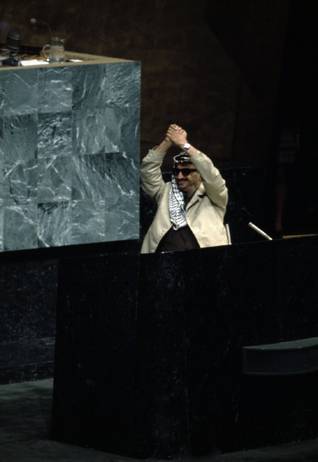
The Camp David Accords were a major blow to the political aspirations of the Palestinians, particularly since the PLO had made important gains on the level of international diplomacy after 1969. This was especially the case after the Palestinian National Council had called for the establishment of an ‘independent combatant national authority for the people over every part of Palestinian territory that is liberated’ in 1974 – thus making some room for a possible division of Palestine.
The PLO Charters of 1964 and 1968, on the other hand, only spoke of a solution for Palestine as a whole. This fundamental change of position would turn out to be a source of tension within the ranks of the PLO. After all, the political position no longer was to insist on the creation of a secular democratic state in the whole of Palestine with equal rights for Palestinians and Jews alike.
Next, in quick succession, came recognition by the United Nations General Assembly of the PLO as ‘the representative of the Palestinian people’ and recognition by the League of Arab States of the PLO as ‘the sole legitimate representative of the Palestinian people in any Palestinian territory that is liberated’.
Palestine, as represented by the PLO, obtained full membership of the League of Arab States in 1976. On 13 November 1974, PLO chairman Yasser Arafat addressed the plenary session of the UN General Assembly, followed by the reaffirmation by the UN of ‘the inalienable rights [of the Palestinian people], in particular, its right to self-determination’. The PLO was given an UN Observer Status ‘in the sessions and the work of the General Assembly’. (See for more in-depth information Recognition of the PLO in Arab-Israeli Negotiations)

